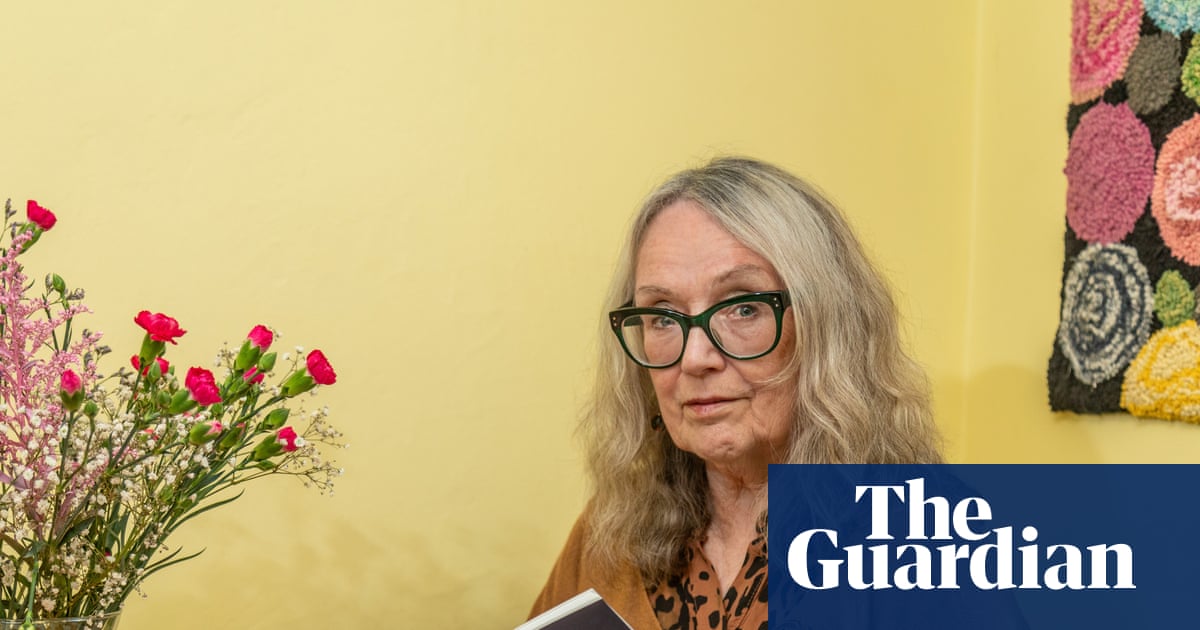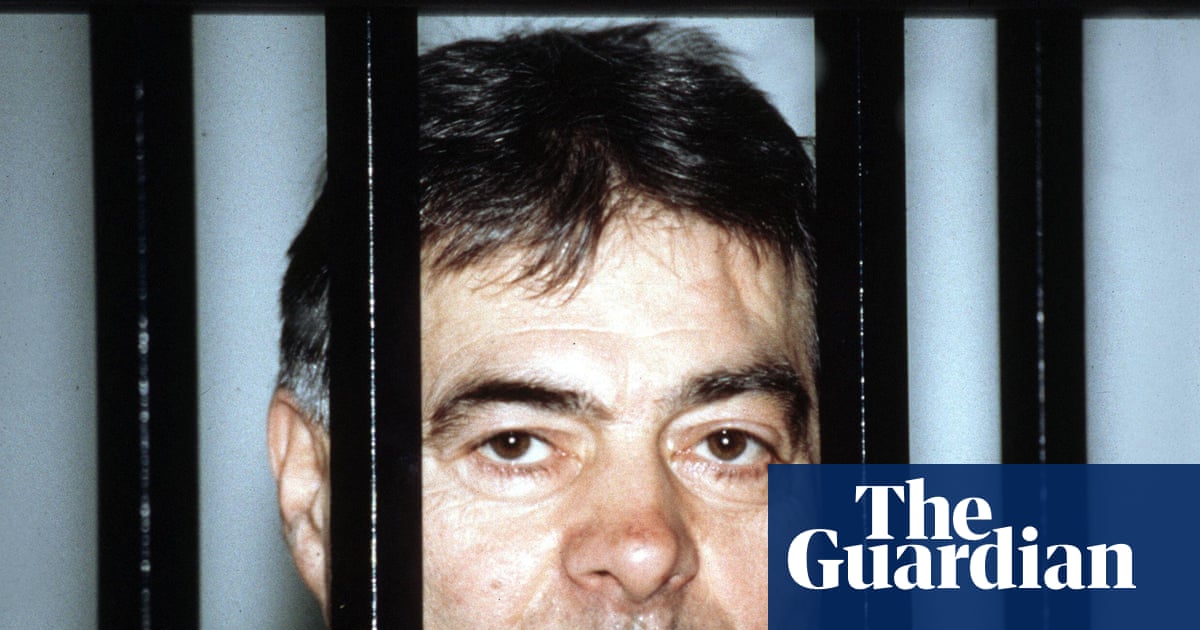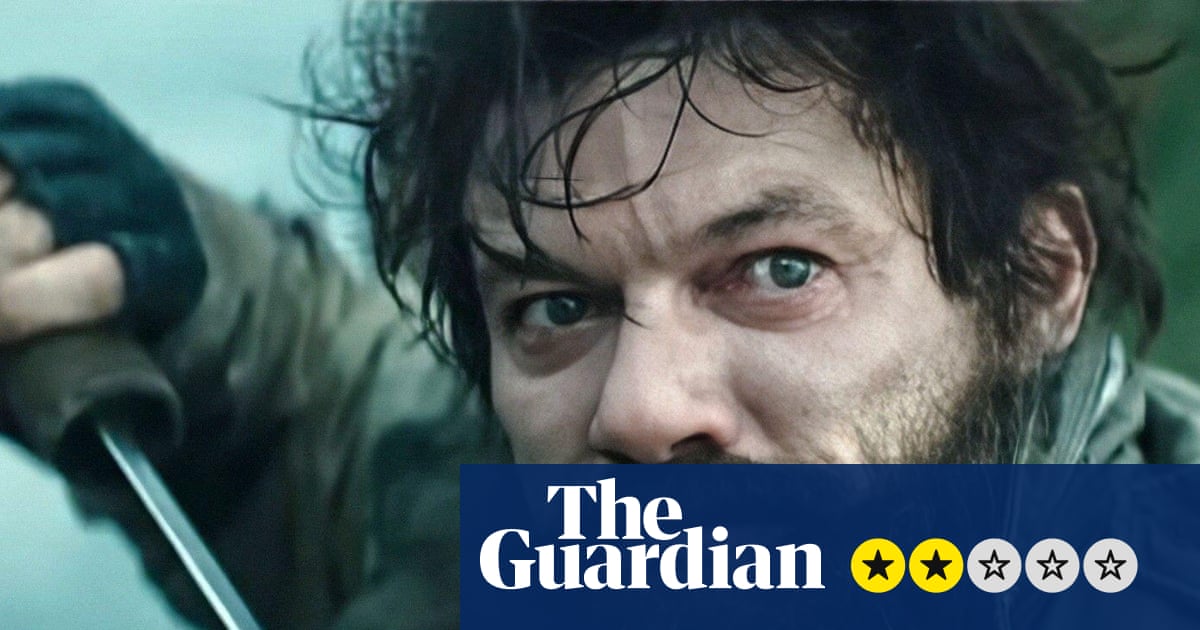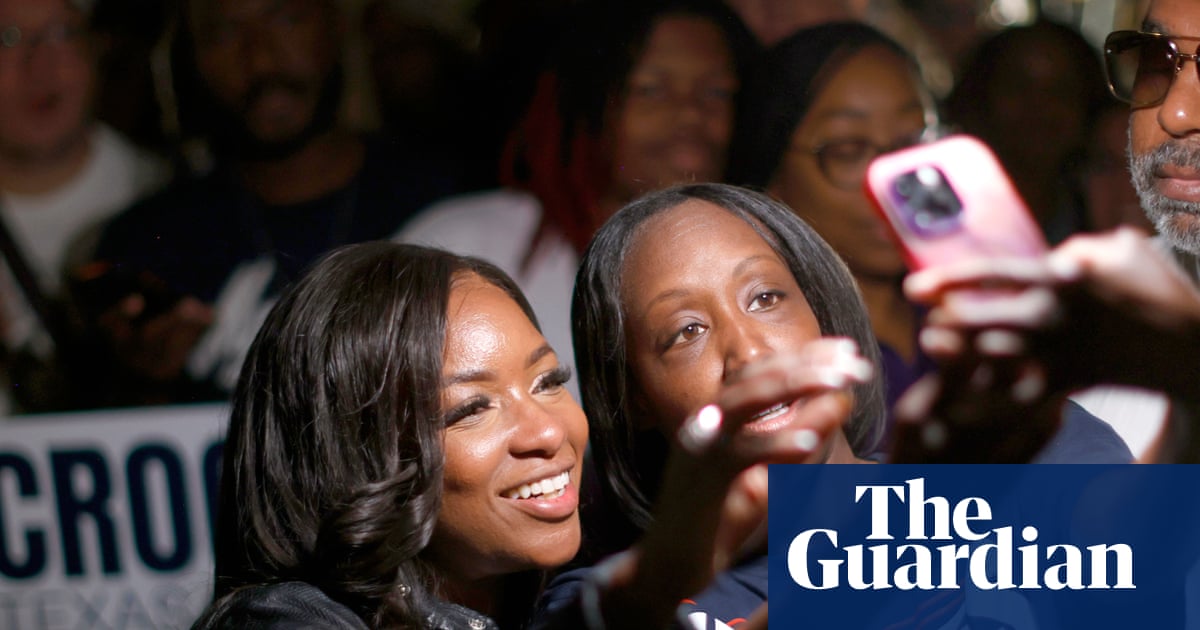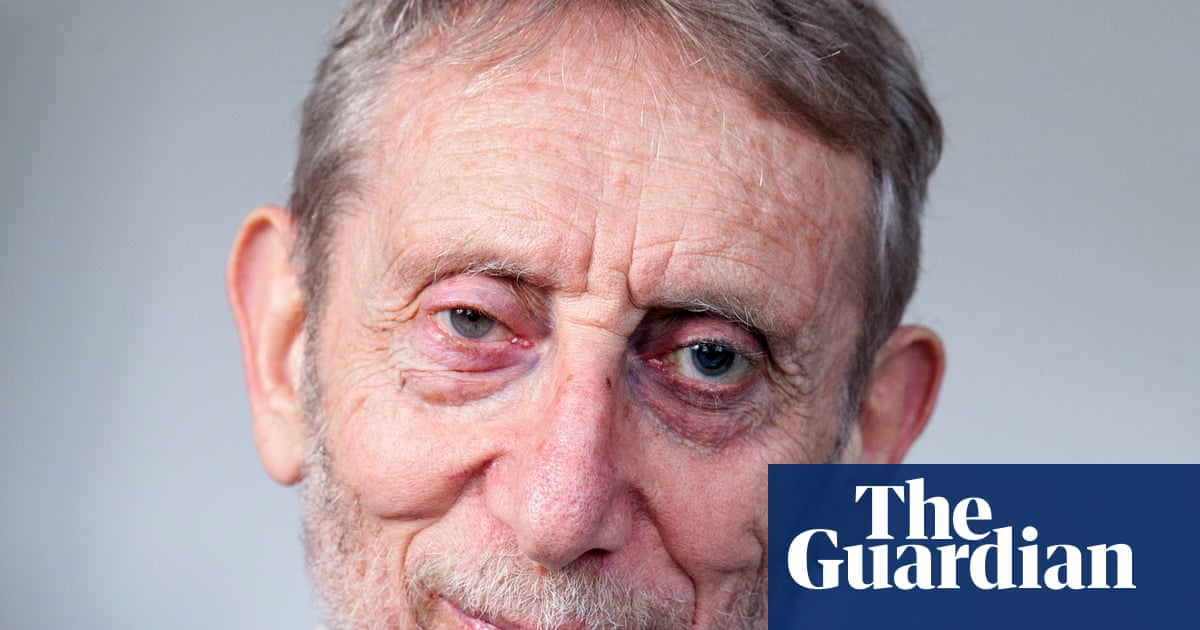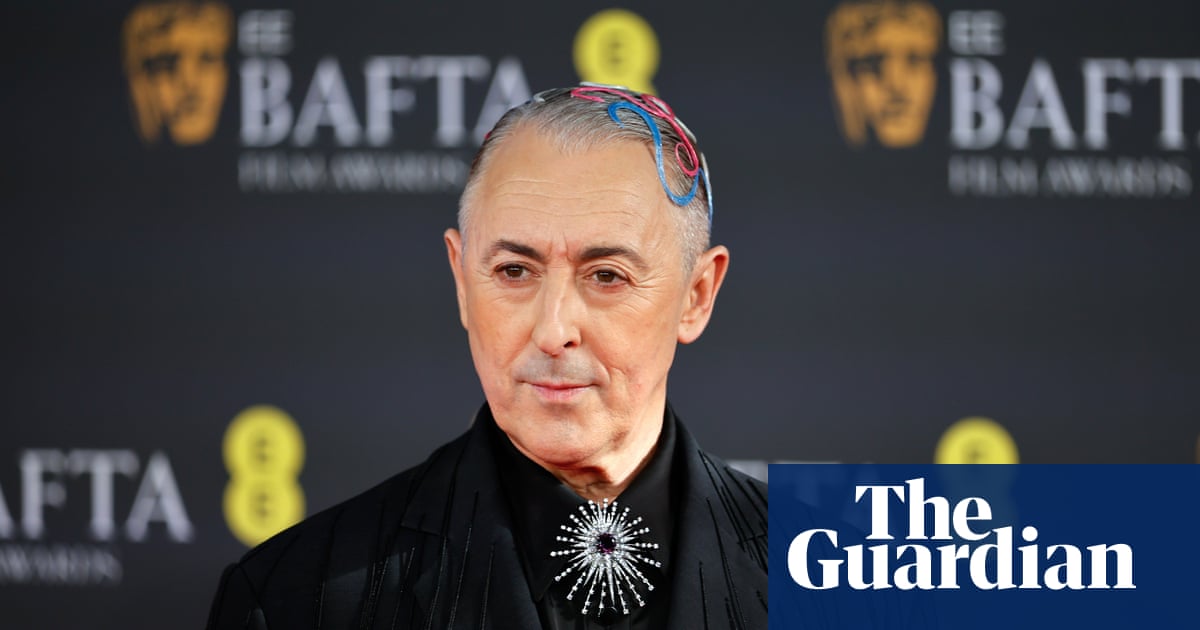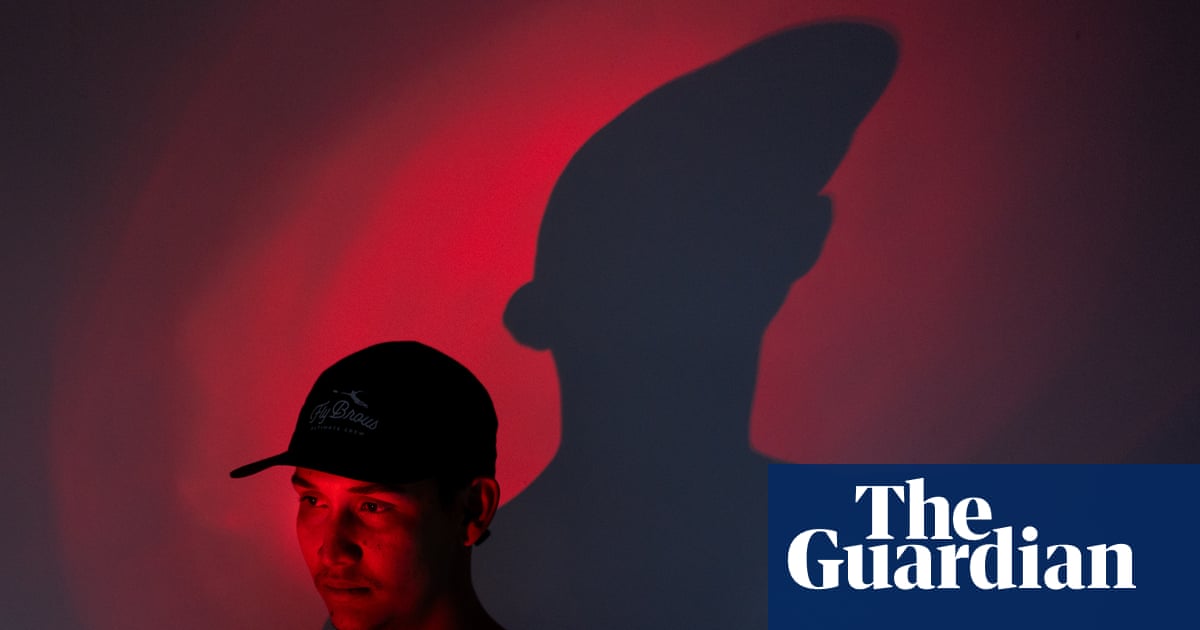Nick Cave claims that at least four different production companies have tried to turn his frequently hilarious, always disturbing, sex-filled novel The Death of Bunny Munro into a film or TV show in the 16 years since its release. The problem? “No one would play the character!” he says, sitting, impeccably suited as always, in a room at London’s Corinthia Hotel. As it turns out, the material was just waiting for the right actor. Step up Matt Smith to play the titular sex-addicted travelling makeup salesman.
It’s not surprising that it ended up being Smith. Since his Doctor Who days, he has tended to pick roles that trend slightly twisted – and the role of Bunny, who in Cave’s book is depicted as a borderline animalistic misogynist who sweats pure ethanol, fits the bill entirely. “I think it’s important to tell stories that feel challenging and difficult and polarising, and I thought this would be all of those things,” Smith says animatedly, clad in head-to-toe black in contrast with Bunny’s rakish suit. “But actually, at its heart, it’s about a father and son, and it’s really beautiful.”
First published in 2009 – after initially being written as a film script for Australian director John Hillcoat – The Death of Bunny Munro follows a sex-obsessed salesman who, after driving his wife to suicide through his constant infidelity, kidnaps his bookish son (played brilliantly by Rafael Mathé) when social services attempt to take him away, and brings him on a surreal road trip around Sussex.
The book is defined by Bunny’s shocking inner monologue and seemingly amoral view of the world; the Sky adaptation, directed by Isabella Eklöf and written by Pete Jackson, presents a slightly toned-down take. A lot of the sex is conveyed through sound and dialogue; some moments from the book, such as Bunny’s rape of a woman who is under the influence of heroin – a scene for which Cave was nominated for the Bad Sex award – are implied rather than depicted in lurid detail. This results in a slightly more sympathetic Bunny, though he is still an undeniable creep, willing to abandon his child for long spells to seduce bored housewives, and intent on teaching his son how to be a lech.
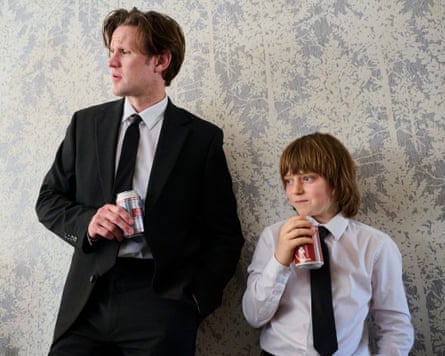
Being set in 2003, the show is also an endearing period piece, filled with clunky Nokias and classic Kylie tracks blaring out of car radios. Smith says he feels the show is “a really faithful adaptation”, though he acknowledges that the book, which is mired in Bunny’s almost free-associative thoughts about women, was incredibly tricky to film. “The pollution of his thoughts, and the danger of his thoughts, are really difficult to translate to a character that you’re going to stick with,” he says.
Bunny’s uniqueness, though, was fundamentally appealing. “I thought the language of the book was beautiful – I read it quite quickly, and I was like: ‘Wow, fuck. This is gonna be a challenge, because he’s pretty out there, but what a great challenge.’ I’d rather do that than something that feels predictable,” says Smith. “He’s quite an operatic character – he’s out there and does mad shit – and they’re the ones that I’m drawn to, otherwise we’re just left with this homogenised, dumbed-down nonsense where no one pushes it too far. This felt really original.”
Although Smith declines to identify what he deems “dumbed-down nonsense”, he does elaborate: “I think we have a tendency to overexplain and try to predict people’s tastes in telly sometimes,” he says. “‘Let’s make it so everyone likes it,’ you know? Some people will like this, some people won’t – I’m totally fine with that.”
Cave feels that Smith’s version of Bunny Munro is “more transgressive than my version, because my version is just a lost individual and a terrible person, and he’s not attractive and he’s not good at what he does.” Smith, on the other hand? “The problem with Matt is that he’s handsome and sexy, and that makes the whole thing slightly more dubious, because he’s doing the same things,” says Cave. “But women actually like it in the show – you can see the sort of pulling power that he has, and I find that more discomfiting in a way. There’s something about the fact that Matt is hot that is quite problematic.”
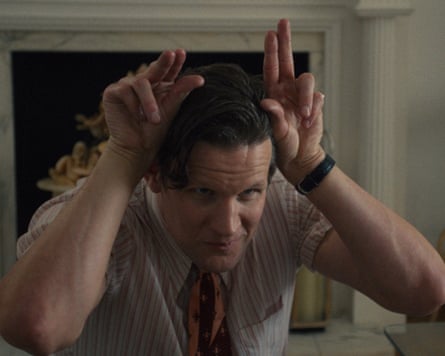
Mathé, who plays Bunny’s nine-year-old son Bunny Jr, is one of the highlights of The Death of Bunny Munro, holding his own even when paired with the go-for-broke Smith. Smith says that working with a child actor on such explicit material was an eye-opening experience for him. “We were really lucky in that we had a brilliant young actor in Raf, who’s smart and understood the emotional complexity of the story, even at such a young age,” he says. “You have to be careful about what you reveal to him – so, for instance, you shoot the scene in the strip joint with the beers and strippers and the naked people first, and then he comes in, and he doesn’t see any of that.”
He continues: “So you’re shooting two sides of a coin all the time. And then I would swear on my takes, and on his takes, I’d say the word frig or flip or sugar. It was the first time I’ve ever been in a story where children have had to witness that level of depravity, and you’ve got to be conscious that he’s nine years old,” he says. “Even if it is a story, you don’t want to expose him too early to things he shouldn’t be anywhere near. But his parents were amazing, and they navigated that whole thing beautifully – we really looked after him. Without him, there’d be no show really.”
The Death of Bunny Munro is, in some senses, a morality tale – a tragedy about a man whose appetites, and inability to care for his family, eventually send him to ruin. Around the time of the book’s release, Cave said he was inspired by a certain kind of British man who’s “laddish, sex-obsessed, thinks that breasts are kind of funny”, and that he wanted to show where that kind of misogyny could lead. Cave says he doesn’t “really relate to that quote any more. I don’t stand in judgment of Bunny Munro any more. I just have a different way of seeing people, and part of that is that we are essentially broken, all of us, to lesser or greater degrees,” he says. “I think we live in a time where there’s a feeling that we should be condemning the transgressive personality wherever we see it, and I find that personally quite difficult to do.”
after newsletter promotion
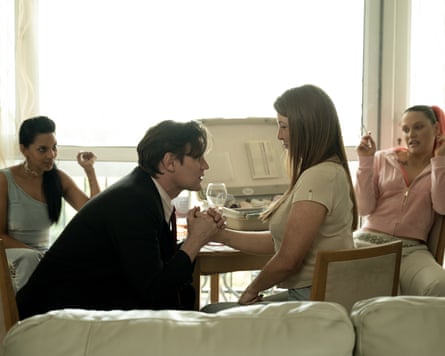
Smith wasn’t looking back to any particular antiheroes when conceiving of Bunny, in part because “he’s a lot of men wrapped up in one. I recognise a lot of different men in him,” he says. “He’s a really complicated, deeply troubled, sad human being. He’s in the nexus of this tornado of grief.”
Now is the perfect time for a Bunny Munro series, says Cave, because of that feeling. “I think the world is hungry for things that step outside the expectations of our culture these days – I just get the feeling that people are looking at ways to test the puritanical nature of our present culture,” he says. “Especially with young people – I’m surrounded by young people because I have kids in their early 20s, and they’re much looser and freer about things these days, and they take a certain pride in that. I think that’s good, as far as I’m concerned – that encourages a more healthy, artistic, free society.”
The Bunny Munro book was considered controversial on its release, in part because of the sexually charged, objectifying way Bunny fixates on Kylie Minogue and Avril Lavigne. Cave ended up apologising to both women on BBC 6Music, although he says “that may have been tongue in cheek. I never met Avril Lavigne, and I hope she isn’t really offended, or was not embarrassed by that – I would really hate that. I hope she wasn’t upset – maybe she just thought it was funny,” he says. “I know Kylie, I asked Kylie what she thought, and she was like: ‘Well, I’ve actually not read your book yet.’ And this went on for years. She says: ‘It’s next to my bed, but I haven’t got around to it.’ So I don’t know if she ever really read it, but I guess she still likes me.”
The pure transgression of Bunny as a character – which led to such controversy after the novel was published – is what attracted Smith to the role in the first place, and why he’s thrilled he got to play him. “It’s always been hard to find parts like Bunny Munro; they’re rare, really rare. That’s the type of stuff I’ve always been interested in,” he says. “I remember all that in-your-face theatre in the 90s, I used to love all that. There was something about it that’s appalling … but it made me sit on the edge of my seat. That’s what Bunny can do.”
The Death of Bunny Munro is on Sky Atlantic on 20 November.

 3 months ago
108
3 months ago
108


